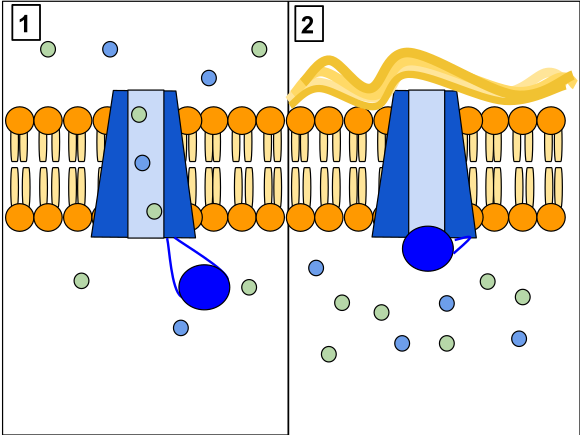Cystic Fibrosis
Cystic fibrosis (CF), also known as mucoviscidosis, is a genetic disorder that affects various organs, primarily the lungs and digestive system. It is inherited in an autosomal recessive manner and is caused by mutations in the CFTR gene. These mutations result in the production of thick and sticky mucus that can clog airways and ducts, leading to severe respiratory and gastrointestinal complications.
Signs and Symptoms

Symptoms of CF typically manifest early in life. Newborns may present with meconium ileus, neonatal jaundice, and frequent, greasy stools. Children often have poor growth, salty-tasting skin, and excessive loss of salt in sweat, which parents might notice when kissing their child. Respiratory symptoms include chronic cough, frequent lung infections, and progressive lung disease leading to respiratory failure. Other signs include nasal polyps, sinus infections, and shortness of breath. Gastrointestinal symptoms include malabsorption, pancreatic insufficiency, diabetes mellitus, liver disease, and rectal prolapse.

Causes

CF is caused by mutations in the CFTR gene, located on chromosome 7. The most common mutation is ΔF508, which accounts for 70% of cases. This gene encodes a protein involved in chloride ion transport across cell membranes. Dysfunctional CFTR proteins result in impaired chloride and water transport, leading to thickened mucus.

Diagnosis

Diagnosis is based on clinical findings, genetic testing, and sweat chloride testing. Newborn screening involves measuring immunoreactive trypsinogen levels, followed by sweat testing if positive. Genetic testing can confirm the diagnosis by identifying CFTR mutations.
Treatment
Management of CF involves a multidisciplinary approach aimed at addressing respiratory, gastrointestinal, and nutritional issues. Treatments include:
- Antibiotics: To treat and prevent lung infections.
- Physiotherapy: Chest percussion and positive expiratory pressure to clear mucus from the lungs.
- Medications: Inhaled bronchodilators, dornase alfa, hypertonic saline, and CFTR modulators like ivacaftor.
- Nutritional Support: Pancreatic enzyme replacement, vitamin supplementation, and high-calorie diets.
- Surgery: Lung transplantation in severe cases.

Prognosis
The prognosis for CF has improved due to advances in diagnosis and treatment. The median life expectancy in developed countries is between 42 and 50 years. Early and aggressive management significantly enhances the quality of life and survival rates for individuals with CF.
Epidemiology
CF is most common among people of Northern European descent, with a prevalence of 1 in 3,000 newborns. It is less common in other ethnic groups. Ireland has the highest prevalence of CF in the world. The distribution of CFTR mutations varies among populations, influencing the frequency and severity of the disease.

Self-assessment MCQs (single best answer)
What is the primary cause of cystic fibrosis (CF)?
Which gene is most commonly mutated in cystic fibrosis?
Cystic fibrosis follows which pattern of inheritance?
What is the most common mutation in the CFTR gene associated with cystic fibrosis?
Which of the following is NOT a typical symptom of cystic fibrosis?
What diagnostic test is commonly used to confirm cystic fibrosis?
Which treatment is NOT typically used in the management of cystic fibrosis?
What is the median life expectancy for individuals with cystic fibrosis in developed countries?
Which of the following is a gastrointestinal symptom of cystic fibrosis?
Which country has the highest prevalence of cystic fibrosis in the world?
Dentaljuce
Dentaljuce provides Enhanced Continuing Professional Development (CPD) with GDC-approved Certificates for dental professionals worldwide.
Founded in 2009 by the award-winning Masters team from the School of Dentistry at the University of Birmingham, Dentaljuce has established itself as the leading platform for online CPD.
With over 100 high-quality online courses available for a single annual membership fee, Dentaljuce offers comprehensive e-learning designed for busy dental professionals.
The courses cover a complete range of topics, from clinical skills to patient communication, and are suitable for dentists, nurses, hygienists, therapists, students, and practice managers.
Dentaljuce features Dr. Aiden, a dentally trained AI-powered personal tutor available 24/7 to assist with queries and provide guidance through complex topics, enhancing the learning experience.
Check out our range of courses, or sign up now!


